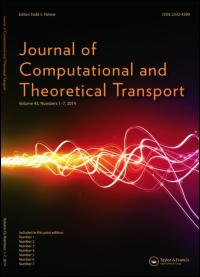The problems in variation here concerned are such as to admit a continuous group (in Lie's sense); the conclusions that emerge for the corresponding differential equations find their most general expression in the theorems formulated in Section I and proved in following sections. Concerning these differential equations that arise from problems of variation, far more precise statements can be made than about arbitrary differential equations admitting of a group, which are the subject of Lie's researches. What is to follow, therefore, represents a combination of the methods of the formal calculus of variations with those of Lie's group theory. For special groups and problems in variation, this combination of methods is not new; I may cite Hamel and Herglotz for special finite groups, Lorentz and his pupils (for instance Fokker, Weyl and Klein)1 for special infinite groups. Especially Klein's second Note and the present developments have been mutually influenced by each other, in which regard I may refer to the concluding remarks of Klein's Note.


266
Views
162
CrossRef citations
0
Altmetric
be0ef6915d1b2200a248b7195d01ef22
Pages 186-207 | Published online: 13 Sep 2006
Pages 186-207
Published online: 13 Sep 2006

